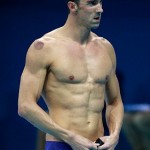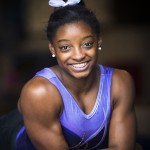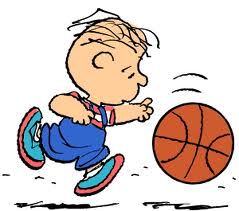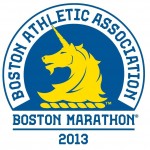Memory was a funny thing. David Jenkins could still name the starters on UCLA’s 1973 championship basketball team, and he could recite Marcy’s girlhood phone number, twenty-five years, four Bruins coaches, and two wedding days later. Yet it seemed to him that his days were dedicated to forgetfulness. So many gaps. There were entire years of his schooling with only the barest souvenir shreds attached to them. The childhoods of his own three kids had become one big soup, with only the occasional bit of meaty remembrance.
“Well, I do remember that Johnny loved to dance. Every time I played ‘Blind’, he went crazy, just boogeying around in his diaper. You know, that was the last vinyl album I ever bought, I think. That was the Talking Heads, right? And projectile poop, I told you about that, didn’t I? That was definitely Jordan, straight off the change table, splat against the wall! Who was trying to change him? Mary, maybe? How’s that for ‘good morning, auntie’! No picture of that one. Hey. I used to have a great picture of Joey, what happened to that? He’s maybe 18 months, standing beside a stop sign. Or a fire hydrant. Anyway, believe it or not, Joey was chubby when he was a little sprout! I think he was the one that fell off the back stoop, or was that…?” It was always Marcy Gingrich, though, at the center of his memories, the one who could always redraw the lines that had faded. He had met her when he was fourteen, and most things before that were hazy in his mind.
Elwood Henry had found a way – one of the usual ones – to deal with a name that can get a boy a bloody nose at recess. He had become the fun boy, the goofball, the lucky charmer, “crazy Henry”. On David’s high school football team, Elwood was a treasured cutup and the object of many gags, practical or just bloody foolish. The Blues were a pitiable team, with a history of doing more damage to each other than to any opponent. One practice, while the team’s only coach was still grabbing an after-school coffee, the captains tried to get things started. So did Potter, who really was crazy when he put on a helmet. He grabbed Elwood around the thigh pads from behind, turned him upside-down, and used him to demonstrate King Kong Bundy’s pro wrestling pile-driver move. A few guys cheered. This was better than stretching! No one was too surprised when Elwood started staggering around the calisthenics lines, eyes wide, arms pointing vaguely. This was Crazy Henry.
“What am I doing? Where am I?” As a sophomore, David had nothing to say, but the veteran players were enjoying the show.
“Hey, not bad, Henry!”
“Better go down to guidance. Rabbit’ll tell you what to do!”
“Listen, how many times did Elwood watch Invasion of the Bodysnatchers, anyhow?”
“Nah, he’s just in a daze. He slept all the way through The Perv’s class.”
“Alright, shut-up, you guys. You wanna get stretching, dickhead? Coach is still pissed about your fumble Friday – hey, dipstick, you listening? Hey! Woody?”
David only knew Elwood from the team, and the occasional hallway elbow, but he knew something about this was weird. He was carrying the joke too far. He had even taken off his helmet, and he looked scared. Jason was stunned to see that Crazy Henry was crying.
“I don’t know who I am!” he wailed.
Nobody knew much about concussions back then, but the Blues were learning. The halls were still buzzing with wide-eyed details – I’m not shittin’ you, he didn’t even know his own name! – when David Jenkins added to the fogbound memories of that vague and losing season.
The Blues practiced Monday through Thursday, though on Fridays it often looked like they’d been press-ganged out of class just that afternoon. A few days after what was by then called The Henry Shuffle, David lined up at his usual slotback position. He knew his assignment on Power Pitch 37, and everyone else’s, too. He imagined himself bursting from his stance, getting a good angle on the outside linebacker, and sealing him to the inside as the running back went wide. Ecker wasn’t quick, but he outweighed David by at least 75 pounds. He knew there was no choice but to cut-block him, since he’d get buried if he tried to hit Ecker up high. On the snap, David sprinted to get wide of the pursuing linebacker, who was quicker than he looked. He threw his body across his path, and the last image he saw before blankness was Ecker’s left knee.
David remembered nothing else until he noticed that he was sitting in Doctor Linden’s office across town, and he never did recall how he’d gotten there. Marcy filled in most of the blanks later. She had stayed after school that day for cheerleading practice, and Guck, the football manager and “go-fer” extraordinaire, knew where to find her.
“Marcy, you gotta come ‘cause Dave got conked out and he can’t find his locker and he doesn’t know which clothes are his, come on!”
Despite the oddity and the overpowering odor of entering the jam-packed jumble of the boys’ tiny change room, Marcy had no trouble in picking out David’s usual jeans, green hockey sweater, and his white Chuck Taylor All-Stars with the wide blue laces. She then took him to his locker, and held up the lock, its dial marked from 0-60.
“Can you remember your combination, sweetie?”
“Yeah! 129, 63, 108.” (Hearing the tale recounted months later, for the fiftieth time, David suddenly laughed, realizing he must have given the combination for his father’s office safe.) With repeated reminders of what he needed to do, and with three red-faced entries into the boys’ washroom near the science labs, Marcy did manage to get David clothed and then driven to the doctor’s. She phoned the Jenkins’s to explain what had happened.
“Oh, my. It’s an ill wind. We just found out that Wayne’s father has died. Heart attack,” David’s mother said. Wayne had married David’s oldest sister, Mary, five years before, and David idolized him – his stunning speed as a country fastball pitcher, the facts he spewed on the most arcane and undebatable subjects, and one unique bit of living room gymnastics. He would make an inverted arch by linking his fingers below his waist, then hop over his joined hands, frontwards and back.
“Oh, Dave,” Marcy said when she came back to the waiting room. “I’ve just talked to your mom. Wayne’s father died today!” She held David’s hand, and watched him. His reaction was muted and very slow, but he seemed to understand. He looked at the carpet, shaking his head slowly. His voice was hollow and strained.
“Oh, no. That’s terrible.” He sat, unmoving, for several minutes. Marcy let him grieve quietly, a little surprised that David wanted no more details and had nothing else to say.
“Your mom says the funeral’s Friday.”
“What funeral? Who died?”
“Mr. Richardson! Wayne’s dad!”
“He died? Oh, no. That’s terrible.” He looked down, and shook his head slowly.
In the hospital that night, Marcy made a little laughter grow through the solemnity, telling David’s visitors how she had broken the news repeatedly, getting a fresh flood of slow-moving grief each time. He could remember the last time she had told him, sitting in those hard chairs in a white room, waiting for the family doctor. It was the first memory that had stuck in his head since his closeup view of the grass-stained knees of Ecker’s football pants.
Years passed. By the end of high school, the Blues had better helmets and some wins, and Marcy and David had already envisioned their riverside wedding. Though they enrolled in different universities, there was no doubt they’d soon be together again. “Darcy and Mave”, their friends sometimes called them. Delighted at their merging, they sometimes called themselves that. Their respective dormitory staffs marveled at the volume of their loving mail. They were married at 21 in Marcy’s back yard, and threw flowers in the water. They were the golden couple, almost always the first among their various associates and friends to have married.
By age 25, there was Joseph and new-born careers. By 27, there was Jordan, a first house, and weekend trips to see Daddy play in various outposts of fast-pitch softball. By 32, there was Jonathan staggering about the backyard Olympics of his two big brothers. And by 34, David and Marcy had loved each other for more than half their lives, but were somehow forgetting how to do it. Too many questions were asked, and too much darkness was falling. There was impotent hope, and pleas for the impossible, bruised walls and broken words. As he traced the plotlines in his mind, David could see the shadows of separation, but no matter how many times he reread the story, he was always surprised at the end, and after all the slowly marching pain, how abrupt it seemed. He kept looking for a rose-colored epilogue.
He was living by then next to Mary and Wayne, in the small apartment they’d built for the last years of his mother’s life after Wayne’s father had died. Having given up playing ball years before to keep summers more clear for Marcy and the lads – she’d never been much for sports – David didn’t hesitate to resume playing when the Port Hope club gave him a call. He brooded dully on the irony that, though he wanted to live and play with hope, there wasn’t any left for him and Marcy. The Sailors weren’t the young, athletic powerhouse they had been before, either, though David was more player than he’d been in his twenties. The manager, Jerry Edwards, remembered too well.
“You know, Dave, you wore mediums when you played before,” he said, handing Jason a pair of large uniform pants. Still, he was able to shed the rust from his throwing arm, his batting stroke was still there, and though he needed a lot more stretching in between innings, he was still pretty quick going from first to third. David, at 35, was glad to have teammates, as well as a ball and some lukewarm dreams to chase. Joey and Jordan, even little Johnny, enjoyed seeing Daddy play, and loved even more roaring about among the trees and picnic tables beyond the rightfield fence.
David remembered where the weakest kid always got placed in tyke baseball, so it was a pin to his pride to have to play right field. It did make it easy to daydream and watch the boys on his custody weekends, and he’d had worse stings. Besides, the kid who’d been the batboy during his first tour of ball-playing duty was the new shortstop, and David had to admit that Skinny was pretty good. Pony was a fast little fixture in centerfield, David’s other favorite position, but he didn’t take charge of the outfield the way David thought he should. He would have reason to remember that thought, not far into his first season back in the blue and gold.
It was a warm Friday in June, and a few bugs lazily circled the floodlights. David was having a good night, and was starting to feel like a ballplayer again, not just “Dad” to his younger teammates. In the fifth inning, he got a good jump on a short fly ball, right off the bat. As he raced in from right, his eyes bounced from the falling ball to Eddie, the second baseman, who was running into the outfield. When he knew Eddie wouldn’t get there, David yelled, “I got it got it got it!” The last thing he remembered this time was that he was going to have to dive to make that catch.
They probably shouldn’t have moved him after a blow to the head like that. He was unconscious for a couple of minutes, and the blood bubbled and spurted from his nose and mouth. After he seemed to know roughly where he was and what was happening, his mates helped him to his feet and, arms draped across the broadest shoulders, David began a deeply drunken march to the dugout. The ambulance was already driving in to the park by the time he crossed the first baseline, and David wanted to know one thing.
“Somebody hurt? Whosa ambulance for?”
The guys had some laughs telling that story, and David filled in the gaps. It had likely been Pony’s left knee – another one, smaller than Ecker’s but moving much faster – as he galloped wordlessly in from centerfield and made the catch, that had broken David’s nose and scrambled his brain. His first dim awareness, the next memory that remained after I got it!, was at least half an hour after leaving the suburban ballpark. He realized, wonderingly, as the back doors opened at the entrance to the hospital emergency room, that he was in an ambulance.
He was wearing his ball uniform. There was lots of blood across the Sailors logo. Memory of where he had been, and how he might have been hurt came only slowly, and David never did recall anything after the doomed race for that short pop fly. The next thing he knew was that Mary was by his hospital bedside. It seemed odd, somehow, that his sister was there, but he was glad to see her. She gently explained what she knew of the accident, its results, and how she’d been notified. Something bothered David, though. Something wasn’t right, but he couldn’t remember what it was. He was vaguely but increasingly anxious throughout their conversation, before a question bloomed in his mind like an instantaneous tumor.
“Where’s Marcy?”
He hadn’t even finished the third syllable before he groaned like a huge and badly wounded beast. He had flashed, in a thundering moment, from his disquiet to the cascading replay of the previous two years of marital drama and separation. Instantly. David hadn’t cried in front of his sister since he’d been five, but sobs shook him like a Doberman does a rag doll. Later, she told him that this blitzkrieg of sudden awareness had played itself out half a dozen times since she’d arrived at his bedside.
“I’m sorry, Mary,” he moaned as she hugged him. “I just remembered.”




